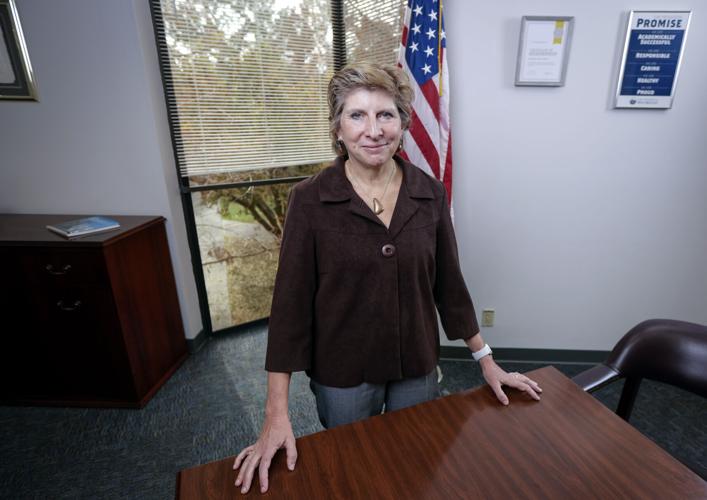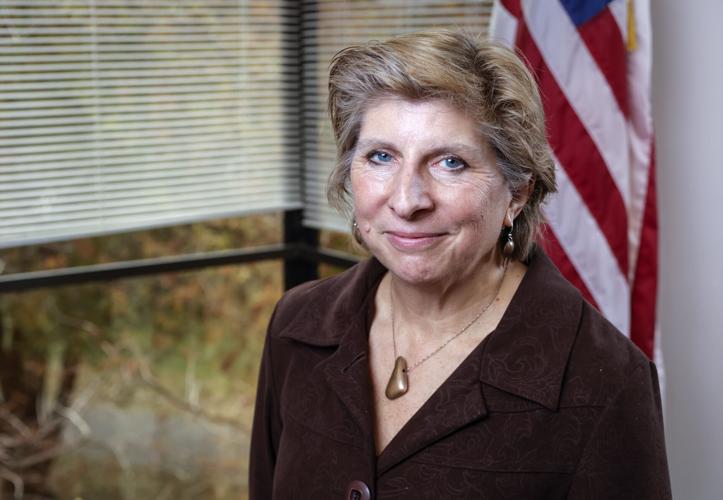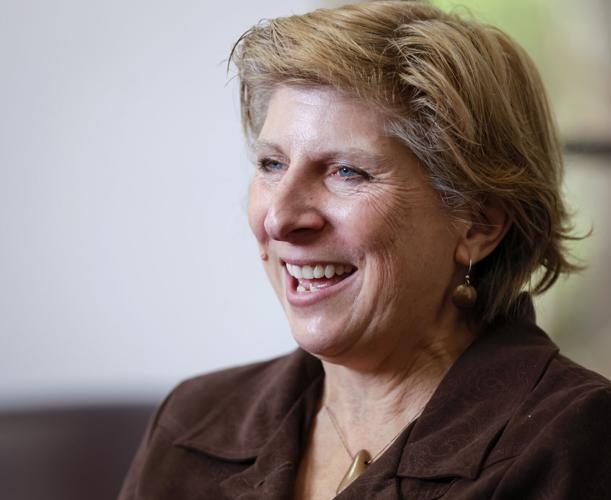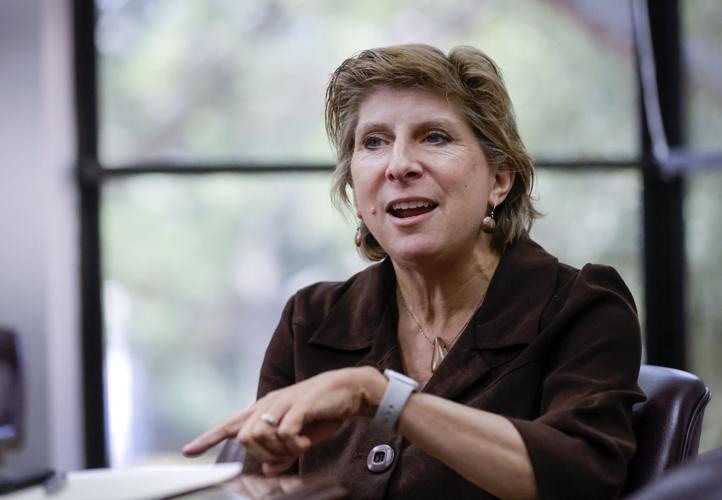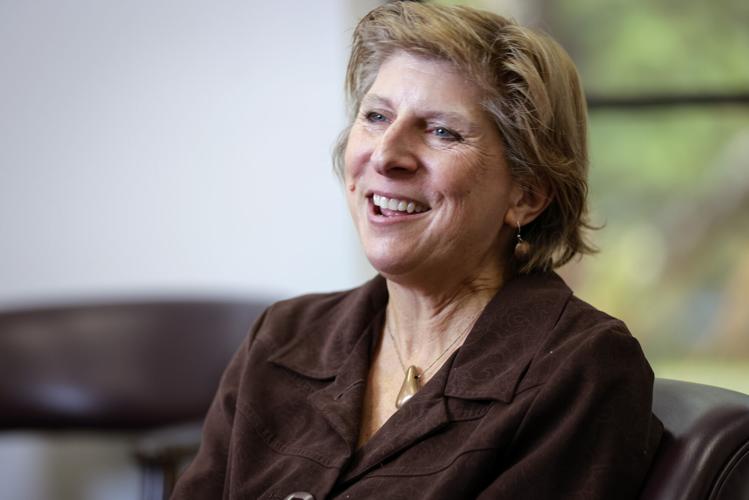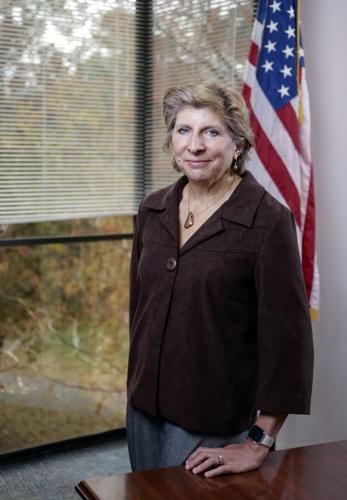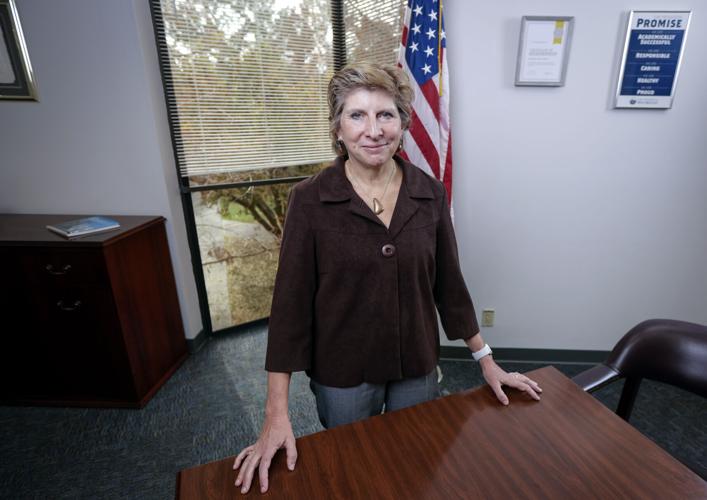Fresh into her tenure as University of New Orleans' eight president, Kathy Johnson faces a monumental challenge — after years of dwindling enrollment, the 65-year old public university has a student body smaller than it was in the months following Hurricane Katrina.
Earlier this year, Johnson, an administrator from Indiana University – Purdue University Indianapolis with three decades of experience in higher education, was selected by the University of Louisiana system to succeed John Nicklow and lead UNO into its next chapter.
She is the school's first permanent female president.
With enrollment numbers that have continued dropping since a pandemic-related dip, Johnson said she aims to focus on growing enrollment, while maintaining affordability, through a combination of reducing barriers to attendance, supporting existing students and thinking creatively about adult education.
“There's no priority more important to me right now than strengthening our enrollment because honestly, it generates the money that we need to run our research endeavors to basically help the university stay healthy and whole,” Johnson said.
"The biggest opportunity right now is strengthening our enrollment through diversifying the students that we serve and making sure that they are retained successfully through their time here."
Indiana to Louisiana
Johnson came to Louisiana by way of IUPUI, where she most recently served as executive vice chancellor and chief academic officer. She has a bachelor’s degree and master’s degree in psychology from the University of Massachusetts and a Ph.D. in psychology from Emory University.
She started at IUPUI in 1993 as an assistant professor of psychology and had stints as chair of the psychology department, dean of University College and associate vice chancellor for undergraduate education.
James Henderson, president of the UL System, said Johnson had impressive credentials but her interactions with groups during the selection process showed she would bring an “authentic leadership presence to the university that is undergirded by a deep understanding of the business.”
“That powerful combination will help her lead University of New Orleans to a new level of impact on the region, particularly for the students the university serves and the employers who hire her graduates,” Henderson said.
Johnson said her time at IUPUI, an urban public research institution much like UNO, made her realize the importance of accessibility , ensuring they can function as “an engine for social mobility” for students.
In her new position, she said, she hopes to sell UNO to students beyond Louisiana by leveraging financial aid to up student retention and ensure a culture where students from all backgrounds feel belonging and support.
Enrollment at UNO peaked in 2003, when more than 17,000 students attended the lakefront university. After Hurricane Katrina in fall 2005, 6,700 students enrolled.
Under Nicklow, who was president from 2016 until stepping down in June to lead the Florida Institute of Technology, enrollment grew steadily until the pandemic and Hurricane Ida hit. It reached 8,400 in 2020, but dropped to 7,953 in 2021 and 7,112 in 2022.
This fall, enrollment was 6,602 students, according to Adam Norris, a spokesperson for the university.
Johnson said she aims to reduce barriers to the application process and admissions, such as easy website navigation and improving communications with potential students.
“We're sort of removing every barrier to a student's progression into and through the university,” she said.
Pandemic future
Many of the challenges plaguing UNO are no different than those faced by other urban institutions with similar missions, Johnson said. In addition to lower enrollment, universities have had to grapple with an influx of students impacted by learning disruptions during the pandemic.
“Frankly, I think we're going to be seeing effects of COVID for a very long time because we know that students in the K through 12 space did not learn the same way that they would normally have learned," she said. “If we admit a student, we have an ethical obligation to meet that student where they are and try to wrap around the support that they need to help them to be successful.”
Johnson said she would explore integrating artificial intelligence tools in the classroom and working with leaders in the local K-12 sector to "align expectations” for college readiness.
She also said she hopes to form partnerships with international universities that have common research interests to create international service and internship opportunities as well as bring students from those schools to study at UNO.
Closer to home, she envisions deeper community engagement within New Orleans, possibly placing UNO students in K-12 schools in the metro area as mentors.
“I'd really like for the University of New Orleans to be at the table when it comes to confronting some of the most vexing challenges that our city is having right now,” she said. “Helping through the research that our faculty do, of course, is important but I also think that our students have lots of energy and potential talent in helping.”

